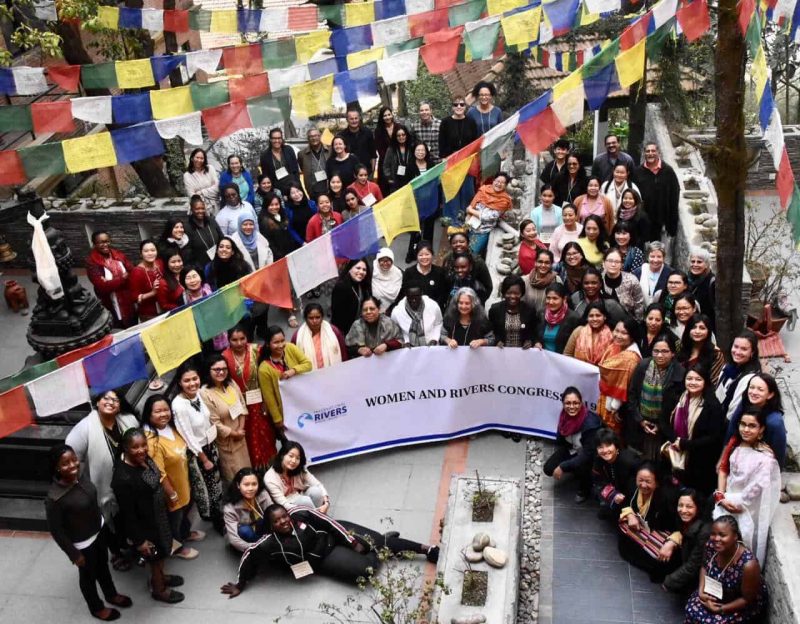GAGGA at the first Women and Rivers Congress

From the 7th to the 9th of March the Global Alliance for Green and Gender Action (GAGGA) participated in the first Women and Rivers Congress, organized by International Rivers in collaboration with the Nepal Water Conservation Foundation (as local host), and with support from Oxfam, Global Greengrants Fund, GAGGA, American Jewish World Service, MacArthur Foundation, and the Government of Sweden, amongst others.
International Rivers took a brave step to organize this congress, as a first global convening with a focus solely on women and rivers. It brought together close to 100 women – and several men – from more than 30 countries, mostly grassroots women, activists, and NGO representatives, but also academics and a few funders and policy makers. The congress set out to celebrate the fundamental role women play in defending and stewarding freshwater resources, as well as to spur collective action to challenge the deep-rooted, gender inequities that women face in safeguarding rivers and river ecosystems. It was held in a beautiful, peaceful place overlooking the Himalayas.
GAGGA had a strong and diverse representation in the congress, with around 20 participants coming from different countries (El Salvador, Colombia, Bolivia, Mozambique, Kenya, Nigeria, DRC, Zimbabwe, Indonesia, India, and Nepal), bringing their vast knowledge and experiences into this space. The GAGGA participants were able to provide in-depth analyses on the root causes behind the unequal access and control of women over water resources, and shared their lessons and insights about how movements usually begin and can be sustained, as well as what support grassroots women need. Through inspiring and lively conversations, interactions and exchange of tactics, all of the women present recognized that although they come from very different countries and contexts, they are facing very similar problems and struggles – from dams, mining, mono-culture plantations, ‘fortress-based conservation’, degrading and destroying freshwater ecosystems, to the systematic exclusion of women from decision-making processes on the use and governance of water resources. GAGGA partners were really excited to have connected with each other and the wider network at this Congress and are committed to continue sharing information about their work and struggles and to build solidarity and support.
In case you are interested to join this group or like more information about the Women and Rivers congress in Nepal, please contact Maite Smet (maite@fcmujeres.org) or Annelieke Douma (a.douma@bothends.org).
• For more information on the Congress please click here.
• To read the Celebratory Statement that was jointly developed by Congress participants, please click here.
• To find out more about GAGGA´s work related to water, visit our website or stay tuned to the next newsletter, which will focus on women’s rights to water.



